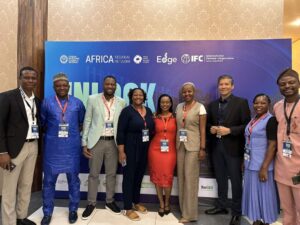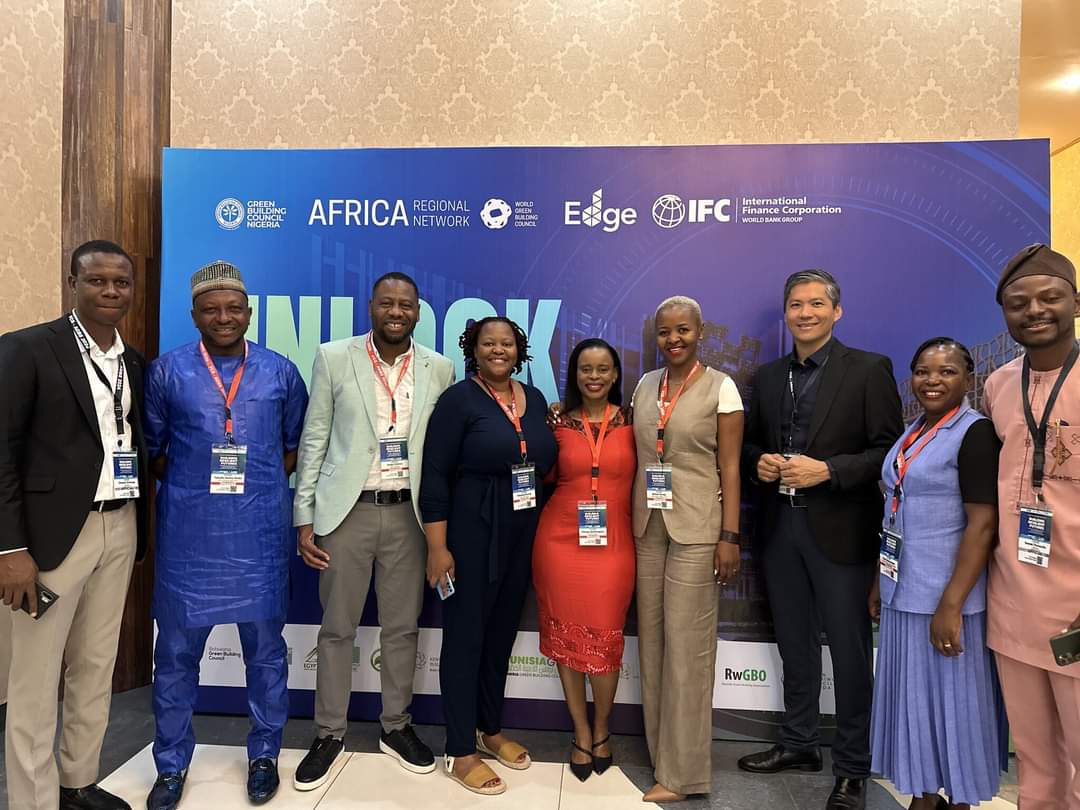Stakeholders in the construction industry have pledged to collaborate on developing actionable policies and an operational framework to promote eco-friendly circular economy and inclusive urban development across Africa.

This commitment was made during the Future Cities Africa Green Building Summit 2024, hosted by the Green Building Council Nigeria and supported by the African regional network between July 17 – 18.
https://adamimogofm.com/wp-content/uploads/2024/07/IMG_5837.mov
The summit highlighted significant challenges impeding the implementation of SDG 13, which aims for a 45% reduction in global carbon emissions by 2030.
These obstacles include government policies, technological constraints, and financial limitations.
Setting the tone for the summit,President of the Green Building Council of Nigeria, Danjuma Waniko, outlined key focal points and future projections.
He urged the government to take a more proactive stance in fostering a green economy, stating, “We need to remove bureaucratic bottlenecks that hinder progress in sustainable construction practices.”
In her submission, Chair of the World GBC Africa Regional Network, Nasra Nanda, emphasized the importance of public engagement by GBCs and encouraged governments to take concrete actions to reduce emissions.
She said, “We stand at the cusp of an urban transformation, and the role of green building councils in Africa can’t be understated. They are really catalysts for driving change, driving adoption of sustainable building practices at a surface level.
“Separately, they set standards. But ultimately, for me, when it comes to Africa is not just about buildings. It’s about creating a resilient, modern, and inclusive Africa for you and I, so that our communities can prosper,” Namda said.
Representing Nigeria’s Minister of Power, Adebayo Adelabu, Ben Ayangaho reaffirmed the government’s commitment to sustainable energy. ” This government through policies regulations and incentives seeks to leverage private sector resources in the implementation of projects to meet energy supply and climate change goals,” Ayangaho stated.
The summit also addressed concerns raised by participants regarding the lack of guidelines and certification for circular organizations. In response, Titilayo Oshodi, Special Adviser to the Lagos State Government on Climate Change and Circular Economy, argued, “In the economics of markets there are various ways by which you can stimulate a demand there’s a role for government but also remember that there’s bureaucracy around these things.
“We need to start being creative, we need to stop being introspective, we need to find ways around multitasking and stimulating the demanding markets,” Oshodi added.
Abiola Kosegbe, representing the Nigerian Society of Engineers, added,”the state government is working on the legal state building code and in the building code.
“We actually have green building and energy efficiency so one of the things that we’ll take back from here is the certification of green products for construction it’s something that really needs to be looked into,” Koseegbe assured.
The event recognized three eco-friendly manufacturing outfits, with Eco Circular Solution Provider Limited winning the innovators category and Team 3A Materials securing the youth empowerment exchange award.
The summit concluded with a focus on developing sustainable transition strategies aimed at promoting economic growth, driving private investment, generating green employment, achieving energy autonomy, and enhancing social well-being across Africa.

